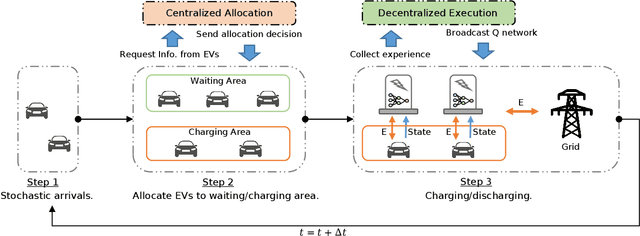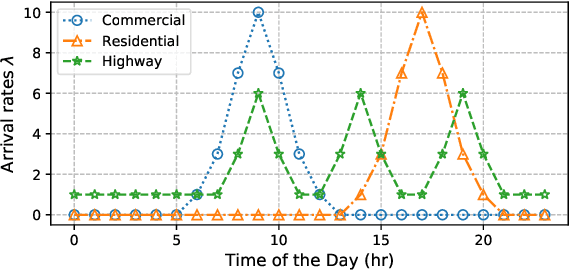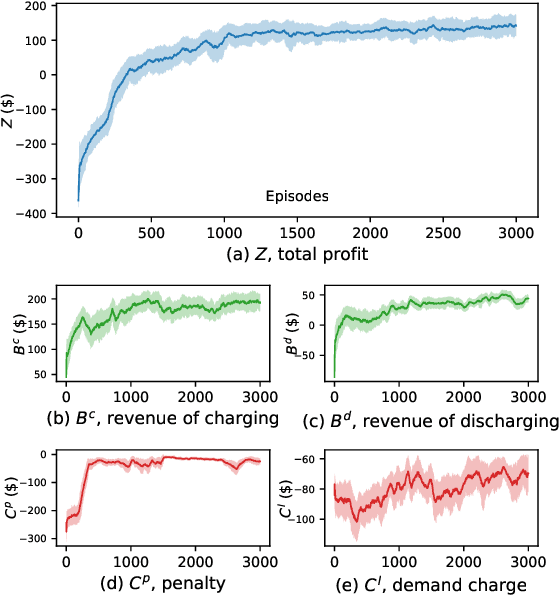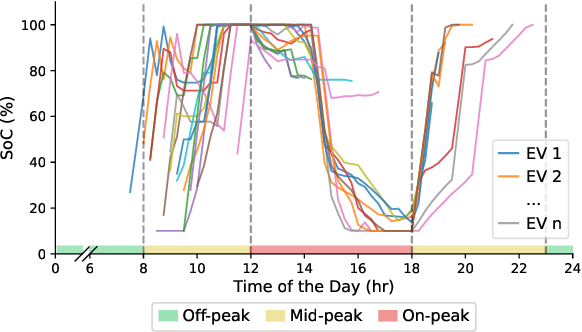Learning to Operate an Electric Vehicle Charging Station Considering Vehicle-grid Integration
Paper and Code
Nov 01, 2021



The rapid adoption of electric vehicles (EVs) calls for the widespread installation of EV charging stations. To maximize the profitability of charging stations, intelligent controllers that provide both charging and electric grid services are in great need. However, it is challenging to determine the optimal charging schedule due to the uncertain arrival time and charging demands of EVs. In this paper, we propose a novel centralized allocation and decentralized execution (CADE) reinforcement learning (RL) framework to maximize the charging station's profit. In the centralized allocation process, EVs are allocated to either the waiting or charging spots. In the decentralized execution process, each charger makes its own charging/discharging decision while learning the action-value functions from a shared replay memory. This CADE framework significantly improves the scalability and sample efficiency of the RL algorithm. Numerical results show that the proposed CADE framework is both computationally efficient and scalable, and significantly outperforms the baseline model predictive control (MPC). We also provide an in-depth analysis of the learned action-value function to explain the inner working of the reinforcement learning agent.
 Add to Chrome
Add to Chrome Add to Firefox
Add to Firefox Add to Edge
Add to Edge